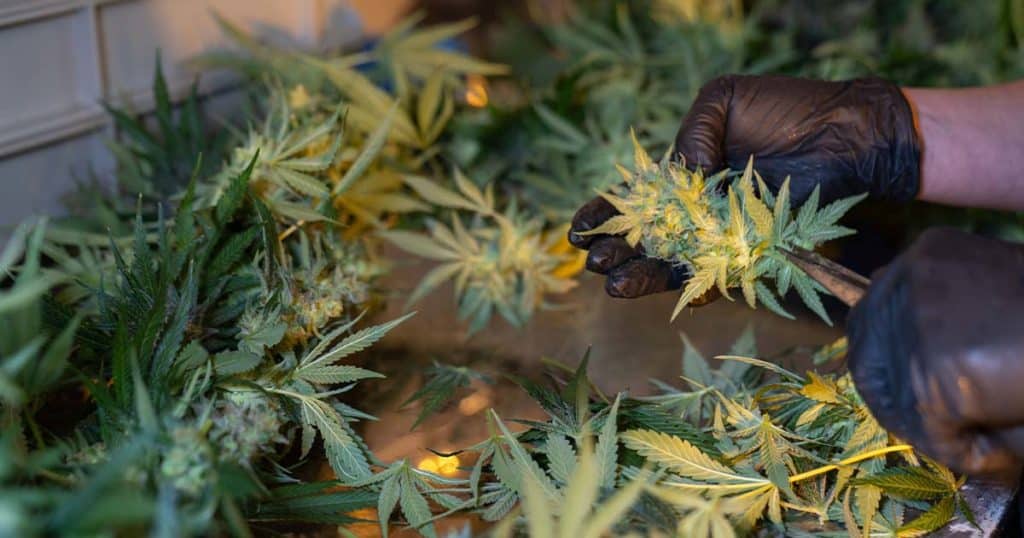The state of New York’s plans for a socially just cannabis industry have hit a roadblock, with the state failing to raise $150 million for the equity-focused portion of its legal marijuana market rollout. The money was intended to go towards finding, securing, and retrofitting locations for the Conditional Adult-Use Retail Dispensary (CAURD) program, which aims to provide retail licenses to “justice-involved individuals” in New York.
What Happened To The $150 Million Fund?
The Dormitory Authority of the State of New York (DASNY) was tasked with finding a fund manager to raise $150 million from private investors, with the state pledging an additional $50 million. However, eight months after the fundraising effort began, the fund has not raised any money.
Despite numerous inquiries, Governor Kathy Hochul and other state leaders have remained silent about the status of the fund. DASNY CEO Reuben McDaniel said the agency has a “great investor base,” but has not had a “final close” yet. Meanwhile, dozens of social equity applicants are in limbo, unable to find locations without the promised assistance and funds.

Lack Of Transparency And Accountability
The state’s lack of information and accountability has frustrated many CAURD applicants, who have invested significant resources into the program. Some have already opened dispensaries, while others are waiting to hear whether they were selected for the program. Meanwhile, only one DASNY dispensary has opened to date, with three others being run by nonprofits that are not eligible for the agency’s loans or locations.
State leaders, including Governor Hochul, state Sen. Liz Krueger, and Assemblymember Crystal Peoples-Stokes, who were all vocal proponents of the equity-focused program, have failed to provide answers or a “Plan B” if the fund remains empty.
Implications And Next Steps
New York’s failure to raise the $150 million equity fund for its cannabis industry rollout has left dozens of social equity applicants in limbo, with little information or assistance from the state. State leaders’ lack of transparency and accountability is unacceptable, and they should be held accountable for their inaction. Meanwhile, social equity applicants who have invested significant resources in the program wonder whether they will ever receive the assistance they were promised.
The failure to raise the equity fund also represents a missed opportunity for New York to create a truly equitable cannabis industry. To move forward, state leaders need to be transparent about the status of the equity fund and provide a clear plan for how they will address the lack of funding. This plan should include alternative sources of funding and a timeline for when applicants can expect to receive assistance. State leaders should also be held accountable for their inaction and failure to deliver on the promises made to social equity applicants.
The Bigger Issue: Access To Capital For Marginalized Communities
In addition, the failure to raise the equity fund highlights the broader issue of access to capital for marginalized communities. Addressing this issue will require broader policy changes, such as expanding access to loans and grants for small businesses, particularly those owned by people of color and other marginalized communities.
Overall, New York’s struggle to fund a socially just cannabis industry underscores the challenges of creating an equitable and just legal cannabis market. However, with increased transparency and accountability, and a renewed commitment to social equity, New York can still work towards creating a truly just cannabis industry that benefits all its citizens.
Conclusion
To move forward, state leaders need to be transparent about the status of the equity fund and provide a clear plan for how they will address the lack of funding. This plan should include alternative sources of funding and a timeline for when applicants can expect to receive assistance. State leaders should also be held accountable for their inaction and failure to deliver on the promises made to social equity applicants.
Furthermore, as mentioned before, the failure to raise the equity fund highlights the broader issue of access to capital for marginalized communities. Addressing this issue will require broader policy changes, such as expanding access to loans and grants for small businesses, particularly those owned by people of color and other marginalized communities.
It is crucial for New York to prioritize social equity in its cannabis industry rollout and work towards creating a truly just and equitable market that benefits all its citizens. With increased transparency, accountability, and a renewed commitment to social equity, New York can still become a leader in creating a model for a socially just cannabis industry.

Enjoyed that first hit? Come chill with us every week at the Friday Sesh for a freshly packed bowl of the week’s best cannabis news!
Most Popular News Posts
- With Deep Roots in Cali’s Cannabis Culture, Circle Labs of Marin County Delivers High Grade Hemp Derived CBD
- Nationwide Decline of THC Levels in Legal Weed Reveals a Tsunami of Boof on the Horizon
- How Meme Culture Has Helped Shape Cannabis Culture in California & Beyond
- The Great California Cannabis Tax Scam Revealed





